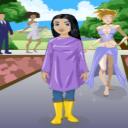Yahoo Answers is shutting down on May 4th, 2021 (Eastern Time) and beginning April 20th, 2021 (Eastern Time) the Yahoo Answers website will be in read-only mode. There will be no changes to other Yahoo properties or services, or your Yahoo account. You can find more information about the Yahoo Answers shutdown and how to download your data on this help page.
Trending News
Since when has Wikipedia become an "excellent source"?
Anyone and their dog and their neighbor and their neighbor's dog can contribute to it, so how does that provide any measure of reliability?
5 Answers
- Lukas WolfeLv 41 decade agoFavorite Answer
The creators of Wikipedia are the first to admit that not every entry is accurate and that it might not be the best source of material for research papers. Here are some points to consider:
* Look for a slant. Some articles are fair and balanced, but others look more like the Leaning Tower of Pisa. If an article has only one source, beware.
* Consider the source. Even if an article cites external sources, check out those sources to see whether they are being cited fairly and accurately — and do, in fact, reinforce the article's points.
* Look who's talking. If you research the contributors themselves and find that they are experts in their fields, you can be more confident in the entry.
* Start here, but keep going. Wikipedia should be a starting point for research but not your primary source for research material.
In December 2005, the scientific journal Nature published the results of a study comparing the accuracy of Wikipedia and the printed Encyclopaedia Britannica. The researchers found that the number of "factual errors, omissions or misleading statements" in each reference work was not so different — Wikipedia contained 162, and Britannica had 123. The makers of Britannica have since called on Nature to retract the study, which it claims is "completely without merit."
When visiting controversial entries, look out for edit wars. Edit wars occur when two contributors (or groups of contributors) repeatedly edit one another's work based on a particular bias. In early 2004, Wikipedia's founders organized an Arbitration Committee to settle such disputes.
Wikipedia does have some weaknesses that more traditional encyclopedias do not. For example
* There is no guarantee that important subjects are included or given the treatment that they deserve.
* Entries can be incomplete or in the middle of being updated at any given time.
* The writers of entries often fail to cite their original sources, thus making it hard to determine the credibility of the material.
These issues should not deter you from using Wikipedia. Just weigh the limitations of Wikipedia — and, for that matter, reference works in general.
- tech_guy 2.0Lv 41 decade ago
I and I'm sure others think that Wikipedia is a great (maybe not excellent) source. Surely anyone can contribute to it, so there is definitely abuse. Now, if you go to edit a page as a guest and post some random information, chances are the "Wikipedia Bot" will revert back to the previous edition of the page because the edit seemed "bad." There a quite a few people involved in the project that are running correcting/checking bots to make sure that the information is accurate and cited. Also, Wikipedia has strict guidelines for the accuracy of their content.
- Anonymous1 decade ago
Most college professors won't allow wikipedia. My suggestion- if you find it on wikipedia -- search elsewhere for the same answer. Wikipedia is not reliable but search other places for information you find on there. I use wikipedia a lot but always find a source to back up what I find. Most college professors won't allow wikipedia as a source.
- 1 decade ago
It has never because other people can edit it and they can be wrong and it is better to use scientific sites
- How do you think about the answers? You can sign in to vote the answer.





